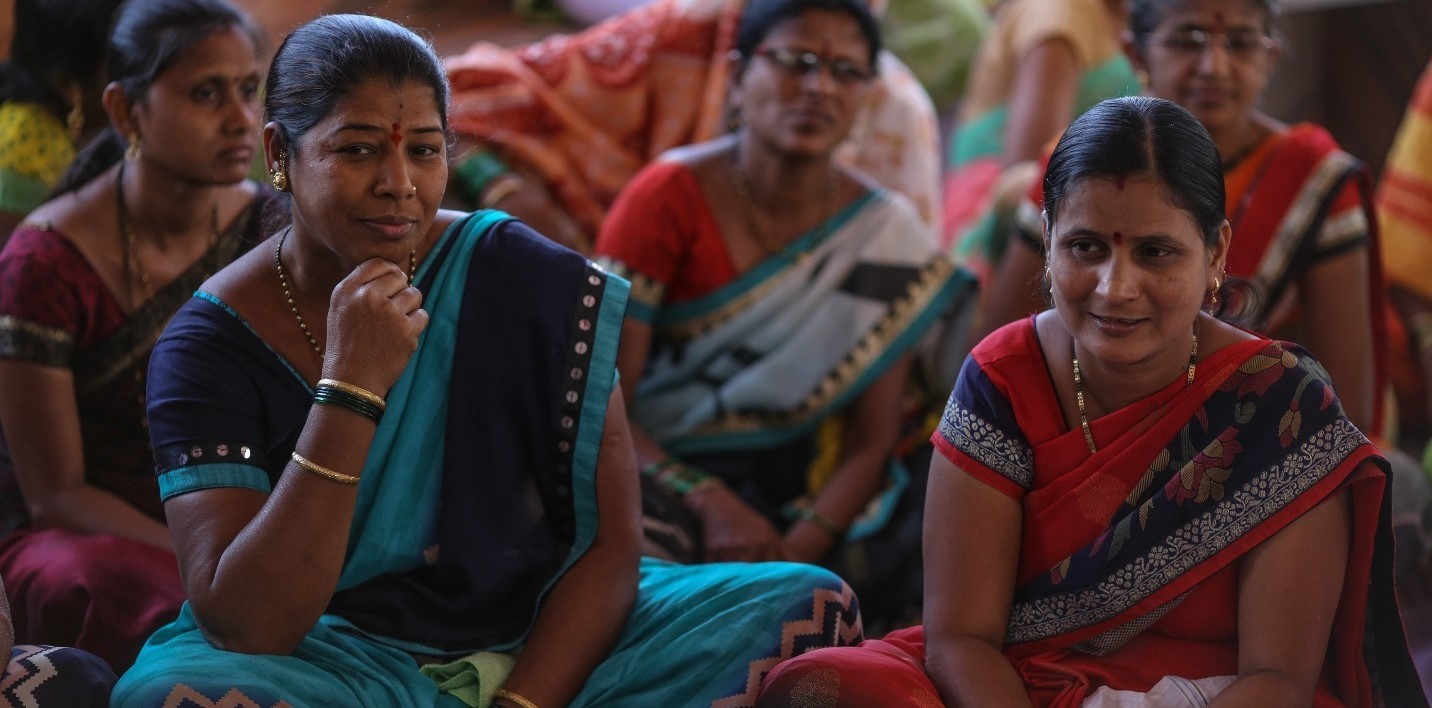IFAD and Govt. of Maharashtra join hands to empower 1 million rural women
IFAD Asset Request Portlet
Asset Publisher
IFAD and Govt. of Maharashtra join hands to empower 1 million rural women
29 June 2021
Rome, 29 June 2021 - The UN’s International Fund for Agricultural Development (IFAD) and the Government of Maharashtra in India launched the Nav Tejaswini programme this week. The project, which aims to socially and economically empower women in 1 million households across the state, will support rural women across Maharashtra’s 34 rural districts to improve their livelihoods by helping them start and expand competitive businesses. It will also improve their access to finance and markets, and household food and nutrition security.
Nav Tejaswini builds on the successful Tejaswini Rural Women's Empowerment Programme, an initiative of IFAD and the Govt. of Maharashtra’s Mahila Arthik Vikas Mahamandal (MAVIM) that closed in 2018. By harnessing the power of community organisations such as self-help groups (SHGs) and community managed resource centres (CMRCs), Tejaswini established strong institutions, financial discipline and well-functioning micro-entrepreneurial activities for poor rural women organised into self-help groups and self-sustaining CMRCs. Nav Tejaswini will leverage these gains to promote women's enterprise in rural Maharashtra.
Maharashtra's Minister of Women and Child Development, Yashomati Thakur, who attended the launch, said, "Sustainable community institutions that are truly governed and managed by women are a unique selling point of the Tejaswini programme. Our hope is that Nav Tejaswini will now bring about a sectoral transformation, promoting women in post-harvest and large-scale agri-business management activities."
The project will also address micronutrient deficiencies among rural people in Maharashtra, particularly women and girls, by promoting crops and products with high nutritional value. It will use SHGs as a platform to raise awareness of good nutrition practices and support members to make better-informed decisions about their family's nutritional habits and dietary diversification.
“Without gender equality, no community can reach its full social or economic potential,” said Meera Mishra, IFAD Country Coordinator, India. “With Tejaswini, rural women began to actively participate in and benefit from Maharashtra’s economy through a robust savings and credit programme, nano- and microenterprises. Now, women are poised to not just move out of poverty but also actively contribute to the growth of rural economy. This investment will help them lead competitive and resilient enterprises, and build prosperous lives for themselves and their families.”
The project will work to address gender inequalities at different levels. It will promote women-friendly technologies that reduce workloads. It will raise awareness of legal rights and encourage women's participation in public spaces and institutions. It will also promote joint titling of land and property and enable decision-making at community, group and household levels. Another significant effort will be to include men in this process, including by holding gender-sensitization workshops.
As a result of the Tejaswini programme, nearly all of the 78,318 SHGs spread across 10,495 villages were able to access formal credit from banks with an excellent 99.5 per cent repayment rate. The programme introduced the successful model of CMRCs – self-managed federations of SHGs – that each federate about 200-300 SHGs and provide a range of social and economic services to its members on a cost-recovery basis.
Community-level transformation in Nav Tejaswini will be led by the CMRCs. It will enable farm and non/off-farm producers and businesses to increase sales and profit through interventions in marketing, product development and quality improvement, productivity enhancement, and through business relationships. It will also build on a successful partnership with commercial banks (initiated as part of the Tejaswini programme) to start micro-enterprise loans for women entrepreneurs.
"Nav Tejaswini is unique in its focus on fostering women micro-entrepreneurs. I am confident that this programme will set up new milestones in this sector," said Jyoti Thakare, Chairperson of MAVIM.
Of the total project size of US$421.87 million, IFAD is providing a $50 million loan and a $1.4 million grant for the new project. In addition, the Government of Maharashtra is providing $104.78 million, with a further $4.9 million contributed by project participants themselves. The project is expected to leverage at least $9.9 million in private investment, while an estimated $250.8 is expected from domestic financial institutions contributing to a bank linkage component.
India is a founding member of IFAD, and IFAD has worked in India for more than 40 years. The current country strategic opportunities programme is fully aligned with the government’s policy framework and efforts to ensure that smallholder food and agricultural production systems are remunerative, sustainable and resilient to climate change and price shocks. To date, IFAD has supported 32 rural development projects in India worth US$1,211.94 million. These interventions have directly benefitted 6,341,436 families.
Read more about IFAD’s work in India
Follow us on Twitter: @IFADSouthAsia
Note to Editor:
For a look at the Tejaswini project, watch:
Footage available on request
Press release No.: IFAD/31/2021
IFAD invests in rural people, empowering them to reduce poverty, increase food security, improve nutrition and strengthen resilience. Since 1978, we have provided US$23.2 billion in grants and low-interest loans to projects that have reached an estimated 518 million people. IFAD is an international financial institution and a United Nations specialized agency based in Rome – the United Nations food and agriculture hub.
